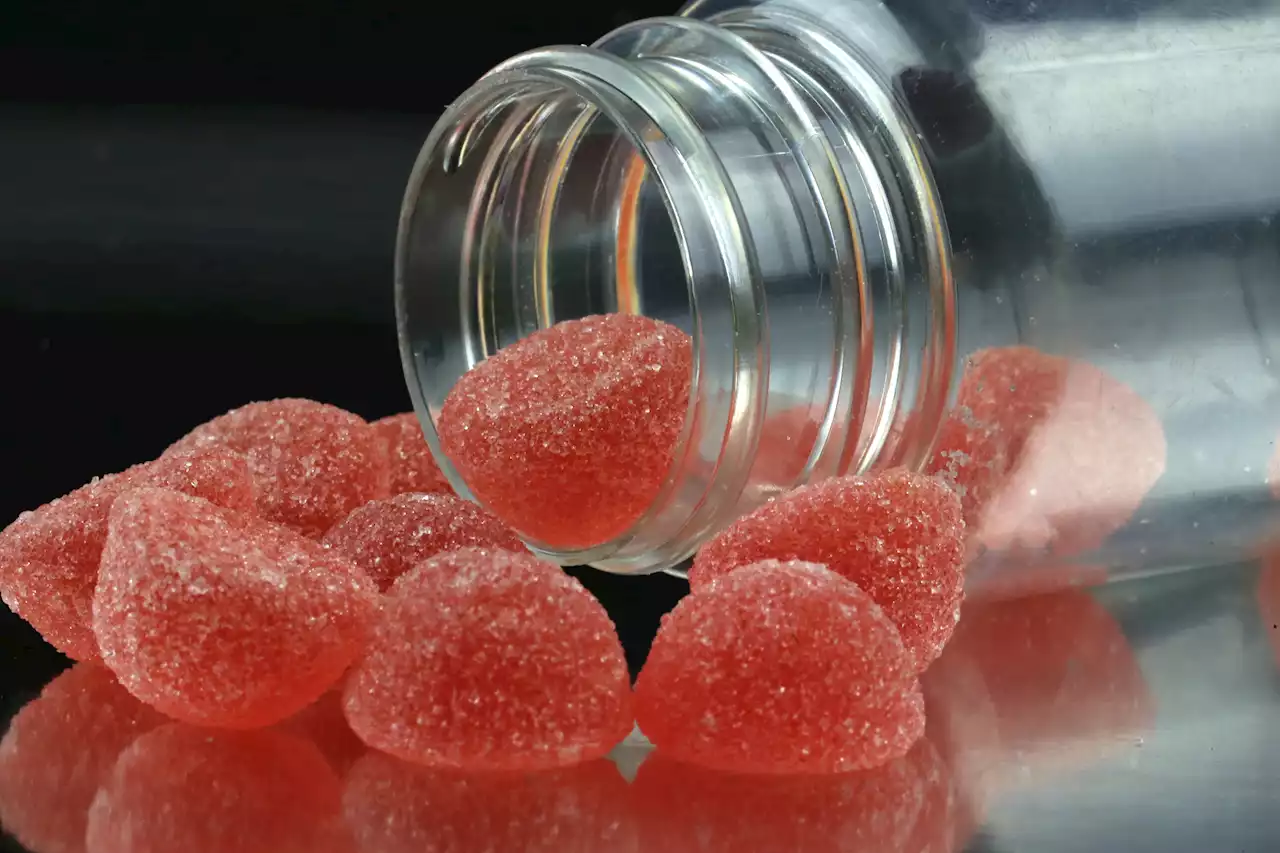In a study of 25 gummy melatonin supplements, 22 didn't match the dose listed on the label
eople who take the over-the-counter supplement melatonin for better sleep may be getting more—or less—of the drug than they think, according to a new. In an analysis of 25 different gummy supplements claiming to contain melatonin, researchers at the Cambridge Health Alliance and the University of Mississippi found that 22 of them contained dramatically different amounts than were stated on the bottle.
The 22 mislabeled products were found to have melatonin quantities ranging from 74% to 247% of the amounts listed on their labels. One contained no melatonin at all. Lead author Dr. Pieter Cohen, an associate professor at Harvard Medical School and internist at Cambridge Health Alliance, says that this didn’t surprise him. Even though melatonin supplements have long been “thought to be relatively safe,” the U.S.
Cohen decided to take a closer look at melatonin gummies after a 2022 report found that calls to U.S. poison-control centers for pediatric melatonin consumptionfrom 2012 to 2021. “The majority of those calls were due to unintentional ingestions,” he says, and gummies are especially appealing to kids, who can mistake the medication for candy.
United Kingdom Latest News, United Kingdom Headlines
Similar News:You can also read news stories similar to this one that we have collected from other news sources.
 Recurrent prescription of sleep medication among primary care patients with type 2 diabetes: an observational study of real-world registry data - BMC Primary CareBackground Little knowledge exists on the prevalence of recurrent sleep medication prescriptions among primary care patients with type 2 diabetes (T2D). Our aims were to examine the prevalence of recurrent sleep medication prescriptions and to elucidate the most often prescribed sleep medications in a Finnish primary care T2D population. Methods The study examined 4,508 T2D patients who consulted a primary health care center between 2011 and 2019 in Rovaniemi, Finland. All the data were retrieved from patient records, and recurrent sleep medication was defined as two or more prescriptions within the study period. We used the Chi-square and Kruskal–Wallis tests to compare patients who did and did not have recurrent sleep medication prescriptions. Results Altogether 28.1% of the T2D patients had been prescribed recurrent sleep medication. Benzodiazepine-like medication, melatonin, and mirtazapine were most often prescribed (to 56.9%, 44.4%, and 35.8%, respectively). Only 22.0% of the patients with recurrent sleep medication prescriptions had been diagnosed with a sleep disorder. Conclusions Recurrent sleep medication prescriptions are frequent among primary care T2D patients. It seems that sleep disorders are underdiagnosed in relation to this. Primary care clinicians should carefully estimate the need for sleep medication when treating T2D patients’ sleep problems and emphasize the diagnostic patterns of sleep problems.
Recurrent prescription of sleep medication among primary care patients with type 2 diabetes: an observational study of real-world registry data - BMC Primary CareBackground Little knowledge exists on the prevalence of recurrent sleep medication prescriptions among primary care patients with type 2 diabetes (T2D). Our aims were to examine the prevalence of recurrent sleep medication prescriptions and to elucidate the most often prescribed sleep medications in a Finnish primary care T2D population. Methods The study examined 4,508 T2D patients who consulted a primary health care center between 2011 and 2019 in Rovaniemi, Finland. All the data were retrieved from patient records, and recurrent sleep medication was defined as two or more prescriptions within the study period. We used the Chi-square and Kruskal–Wallis tests to compare patients who did and did not have recurrent sleep medication prescriptions. Results Altogether 28.1% of the T2D patients had been prescribed recurrent sleep medication. Benzodiazepine-like medication, melatonin, and mirtazapine were most often prescribed (to 56.9%, 44.4%, and 35.8%, respectively). Only 22.0% of the patients with recurrent sleep medication prescriptions had been diagnosed with a sleep disorder. Conclusions Recurrent sleep medication prescriptions are frequent among primary care T2D patients. It seems that sleep disorders are underdiagnosed in relation to this. Primary care clinicians should carefully estimate the need for sleep medication when treating T2D patients’ sleep problems and emphasize the diagnostic patterns of sleep problems.
Read more »
 Study identifies an unknown SARS-CoV-2 lineage on three mink farms in PolandStudy identifies an unknown SARS-CoV-2 lineage on three mink farms in Poland PIWet_PIB Eurosurveillanc mink minkfarms mink zoonosis transmission cryptic lineage publichealth
Study identifies an unknown SARS-CoV-2 lineage on three mink farms in PolandStudy identifies an unknown SARS-CoV-2 lineage on three mink farms in Poland PIWet_PIB Eurosurveillanc mink minkfarms mink zoonosis transmission cryptic lineage publichealth
Read more »
 Study shows no significant cognitive benefit of adhering to Mediterranean diets regardless of calorie intakeStudy shows no significant cognitive benefit of adhering to Mediterranean diets regardless of calorie intake UICnews thisisUIC meddiet mediterranean mediterraneandiet calorie intake benefit research
Study shows no significant cognitive benefit of adhering to Mediterranean diets regardless of calorie intakeStudy shows no significant cognitive benefit of adhering to Mediterranean diets regardless of calorie intake UICnews thisisUIC meddiet mediterranean mediterraneandiet calorie intake benefit research
Read more »
 Study reveals CMPK-2 protein-coding gene as a potent inhibitor of flavivirusesStudy reveals CMPK-2 protein-coding gene as a potent inhibitor of flaviviruses Gene Protein Zika Virus flavivirus CMPK2 Mitochondria Flaviviruses Luciferase Transfection Dengue PLOSPathogens
Study reveals CMPK-2 protein-coding gene as a potent inhibitor of flavivirusesStudy reveals CMPK-2 protein-coding gene as a potent inhibitor of flaviviruses Gene Protein Zika Virus flavivirus CMPK2 Mitochondria Flaviviruses Luciferase Transfection Dengue PLOSPathogens
Read more »
 Study reveals alarming global burden of antimicrobial resistance in bacterial infectionsStudy reveals alarming global burden of antimicrobial resistance in bacterial infections AntimicrobialResistance AMR GlobalHealth PublicHealth InfectiousDiseases BacterialInfections Healthcare Research DataGaps TheLancet
Study reveals alarming global burden of antimicrobial resistance in bacterial infectionsStudy reveals alarming global burden of antimicrobial resistance in bacterial infections AntimicrobialResistance AMR GlobalHealth PublicHealth InfectiousDiseases BacterialInfections Healthcare Research DataGaps TheLancet
Read more »
 Activity snacking may help with type 1 diabetes - studyA small trial suggests regular walking breaks, alongside insulin treatment, may lower blood sugar levels.
Activity snacking may help with type 1 diabetes - studyA small trial suggests regular walking breaks, alongside insulin treatment, may lower blood sugar levels.
Read more »
